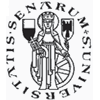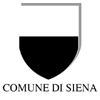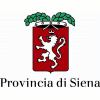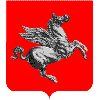Presentation
The 9th Graduate Profile Report comes at a particularly interesting time for Italian universities. Between the 190,000 graduates investigated by AlmaLaurea (class 2006) from 44 universities, for the first time, the amount of the post Bologna reform first level graduates prevail over the number of the pre reform old degrees alumni.
Together with the 100.000 first level graduates we count also more than 17.000 former students of the second level, that are the first second level “pure” students, belonging to the reformed University system since their enrolment at the University. The profiles of these post-reform graduates, make it possible to conduct significant checks on the state of progress of the university reform.
The survey has been possible thanks to the membership of a growing number of universities that have made available a wealth of reliable and timely documentation, particularly useful to the Ministry of Education and Research (MiUR), to the National Agency for the University System and Research (ANVUR), to the university governing bodies and assessment committees, as well as to school managers and staff engaged in the delicate task of guidance into higher education.
Aspects analysed
Based on the study of approximately one hundred different variables, the Report has produced up-to-date profiles for the 190,000 ALMALAUREA graduates who completed their degrees between 1st January and 31st December 2006. This 2007 edition of the Profile follows the structure adopted in previous years and is broken down into university, discipline, faculty, degree course/category, gender and type of graduate (worker-student, student-worker, student).
The distinction between pure graduates (i.e. those who enrolled directly on a degree course offered by the reformed university) and hybrid graduates (i.e. former pre-reform students who subsequently transferred to a post-reform degree course), introduced last year only for the first level graduates has been extended this year to the whole post Bologna Reform higher education system.
Among the graduate characteristics investigated in the Report, the following are of particular interest:
- age at graduation and enrolment
- examination and graduation grades
- regularity of completion times and duration of academic study
- parents’ qualifications
- social class of the family
- type and mark of high school certificate
- regularity of class attendance
- study abroad periods
- training periods or in-house company training experiences
- time taken to complete thesis/final examination
- assessment of university experience
- sustainability of academic workload
- foreign language skills
- IT skills
- intention to pursue postgraduate study
- preferred employment sector
- characteristics of job aspired to.
For the first time, the survey also explores the following:
- The reasons behind the choice of specific degree course
- The experience of graduates enrolled at the University in a mature age
- Foreign students Study and life conditions at the Italian Universities
Between training and work: Report on the learning and/or employment of the first level graduates of 2005
To offer a complete information, useful to monitor first level graduate job condition and to provide the necessary knowledge elements for the redesign of university courses as foreseen by the Ministerial Decree 270/2004, AlmaLaurea Consortium launched in 2006 an experimental survey who involved all first level Italian graduates of the solar year 2005 (around 80.000), belonging to the 41 AlmaLaurea Universities.
The survey, recently concluded, has merged two different methodologies of data record: CAWI (Computer Assisted Web Interviews) and CATI (Telephone Assisted Interviews). This experimentation offers the possibility to analyze learning and occupation outcomes for every university belonging to AlmaLaurea also broken down into study discipline (degree classes) and, where numbers will allow to, degree course.
Among the investigated features: study prosecution through the University second level enrolment, reasons to continue or not the university education, participation to other training activities, job conditions (working, looking/not looking for a job), covered work position features (type of contract, effectiveness, revenues).
Programme
Thursday, 24th May 2007, at 4.30 p.m.
Introduction by: Silvano FOCARDI (Rector University of Siena)
Chairman: Lorenzo GAETA (univ. Siena)
Welcome speeches by: Gianfranco SIMONCINI (Toscana Region, Councillor for education, training and labour)
Luciano MODICA (Undersecretary, Ministry for Education and Research)
Presentation:
First AlmaLaurea Report on the learning and/or employment of the first level graduates from 2005
(First results of the survey that has involved all first level graduates from the whole 2005, from 41 universities belonging to AlmaLaurea; approximately 80.000)
Andrea CAMMELLI (Direttore AlmaLaurea)
Methodology of the survey: integration of different methods of data record via telephone (CATI) and via web (CAWI)
Furio CAMILLO (University of Bologna) e Claudia GIROTTI (AlmaLaurea)
Science Degrees and Humanities Degrees
Ulderico SEGRE (University of Modena and Reggio Emilia) and Elio FRANZINI (University of Milan "Statale")
Territorial differences
Silvia GHISELLI (AlmaLaurea)
Gender differences
Mirella GIANNINI (University of Napoli Federico II)
Friday, 25th May 2007, at 9.30 a.m.
Chairman: Vittorio SANTORO (Vice rector University of Siena)
Presentation:
9th AlmaLaurea Graduate Profile Report, year 2006
(190,000 graduates from 44 universities; more than 100,000 first level graduates)
Andrea CAMMELLI (Direttore AlmaLaurea)
Social infrastructure and services for students
Francesco PERONI (University of Trieste) e Andrea MESSERI (University of Siena)
Live and study experience of foreign students at the Italian Universities
Lupo DONA' DALLE ROSE (University of Padova) and Silvia GALEAZZI (AlmaLaurea)
The role of the Erasmus experience and language skills in the enlarged Europe
Linda LOMBARDO (University of Luiss Guido Carli)
Graduates enrolled at the University in a mature age
Aureliana ALBERICI (University of Roma Tre)
Towards the postgraduate studies (university and not): graduates intentions
Renato DI NUBILA (University of Padova)
The driving forces in the choice of the concluded degree courses
Valeria RUGGIERO (University of Ferrara)
The first level graduates at the Stella Universities
Nello SCARABOTTOLO (University of Milano Statale)
The first second level pure graduates
Luciano BENADUSI (University of Roma La Sapienza) and Gian Piero MIGNOLI (AlmaLaurea)
at 2.30 p.m.
Chairman: Silvano FOCARDI (rector University of Siena)
THE CONVERGENCE OF THE HIGHER EDUCATION SYSTEMS IN EUROPE
Chairman: Roberto MOSCATI (University of Milano Bicocca)
Speakers:
FRANCE (Pierre DUBOIS - University of di Parigi Marne la Vallée)
GERMANY (Ulrich TEICHLER - University of di Kassel)
FINLAND (Marja HAYRINEN-ALESTALO - University of di Helsinki)
POLOND (Marek FRANKOWICZ - Jagellonian University of Krakow)
THE STATE OF PROGRESS OF THE REFORM IN ITALY
Chairman: Fabio ROVERSI MONACO (PAlmaLaurea President)
Speakers:
Maria STICCHI DAMIANI (coordinator of the Italian Bologna Promoters)
Luigi BERLINGUER (President of the Committee for the diffusion of the scientific culture)
Gianni GUASTELLA (University of di Siena)
Angelo GUERRAGGIO (University of Bocconi – University of Insubria)
Guido MARTINOTTI (univ. Milano Bicocca) Mario MORCELLINI (President of the Interfaculty)
Andrea LENZI (President of the CUN)
Silvano FOCARDI (Crui)
Session closing speeches will be given by:
Ministro Fabio MUSSI (Minister of the Higher Education and Research)






